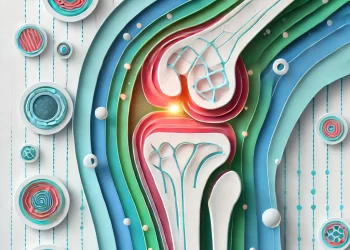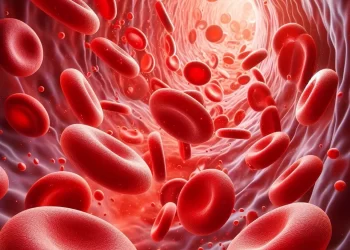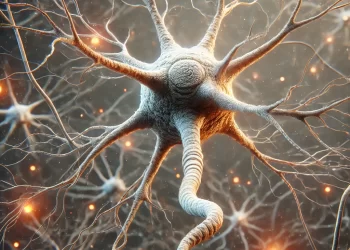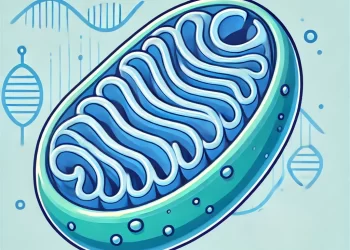Exploring the frontier of scientific anti-aging research is paramount to understanding our progress to finding solutions to extend our lifespan.
The science also serves as a critical foundation for the companies aiming to innovate and find treatments that will enable us to live longer and better.
The hope being a future where aging is no longer an inevitable decline, but rather a modifiable aspect of biology. As such we will highlight all of the most recent and relevant advancements in scientific anti-aging research that is being published.
Highlighted anti-aging research:
More anti-aging research:
GD3 Enables Senescent Cells to Avoid the Immune System During Aging
Research identifies GD3, expressed on the surface of senescent cells, as a key factor that allows these cells to evade...
Longevity Escape Velocity Explained
Longevity escape velocity is the threshold where medical advancements extends our lifespans indefinitely by outpacing the aging process.
The $111M XPRIZE Healthspan Competition
XPRIZE Healthspan is a $111M prize competition aiming to incentivize the development of therapeutics that significantly extend healthspan.
A Summary of Metformin as a Potential Anti-Aging Therapy
Metformin is used for type 2 diabetes treatment, however, it has recently gained significant attention in the field of anti-aging.
A Summary of Telomeres as a Potential Anti-Aging Target
This summary highlights what we currently know of telomeres and the telomerase enzyme as potential anti-aging targets.
A Summary of Rapamycin as a Potential Anti-Aging Therapy
Rapamycin is used as an immunosuppressant, however, it has recently gained significant attention in the anti-aging research communities.
The Potential of Reversing Age-related Biological Changes
A recent study explores the potential of reversing age-related biological changes by targeting the insulin/IGF-1 signaling pathway
The Implication of Ferroptosis in Aging and Age-Related Diseases
A recently published research review explores ferroptosis and its significant implications for aging and age-related diseases.
Natural Astragalus-Based Supplement Lengthens Telomeres
Research suggests that an Astragalus-based supplement may help lengthen telomeres, and thereby reduce cellular age-related decline.
Research Identifies Molecule for Rejuvenating Aged Skin
Recent research has identified HAPLN1 (hyaluronan and proteoglycan link protein 1) as a promising factor for rejuvenating aged skin.
The Positive Effects of Cellular Senescence on Tissue Repair
Research shows that cellular senescence can play a positive role in tissue repair, particularly in the meniscus of the knee.
Synergistic Anti-Aging Effects of mTOR and SGLT-2 Inhibitors
A research review suggests that combining mTOR inhibitors and SGLT-2 inhibitors could provide benefits in slowing down the aging process.
Tackling Aging with Combination Therapies
Research suggests that targeting multiple aspects of aging through combination therapies could be more effective than single interventions.
How Amyloid Beta may Accelerate Aging
Research shows how Amyloid Beta (Aβ) may accelerate aging via protein insolubility, and identifies Urolithin A as a potential solution.
CRISPR-Cas9 Discovers Regulators of Aging in Neural Stem Cells
A recent study using CRISPR-Cas9 gene-editing technology reveals Slc2a4 as key regulator of brain health and aging in neural stem...
Stem Cells Rejuvenate Blood Vessels & Promote Longevity in Mice
Recent research found that CD133+ stem cells restores the function of blood vessels and extends lifespan in aging mice.
Preventing Age-Related Cognitive Decline with Mix of Known Drugs
A combination of the three known drugs rapamycin, acarbose, and phenylbutyrate was shown to prevent age-related cognitive decline in mice.
Reversing the Defects of Neural Stem Cells During Aging
Recent research explores how aging alters the behavior of neural stem cells and investigates potential methods to restore their function.
OSER1 Reduces Oxidative Stress and Extends lifespan
Researchers have discovered that the gene OSER1 plays a key role in managing oxidative stress and extending lifespan in multiple...
The Potential of miR-29 as an Anti-Aging Target
Recent research has identified a small molecule named miR-29 as a significant regulator of aging and potential anti-aging target.
The Anti-Aging Potential of SGLT2 Inhibitors
Research suggests SGLT2 inhibitors may remove harmful senescent cells, which accumulate as we age and contribute to age-related diseases.
Cold Temperature Extends Longevity in Human Cells
Research has discovered that moderate cold temperature extends longevity and reduce the risk of age-related diseases in human cells.
Does Intermittent and Periodic Fasting Improve Longevity?
A scientific review highlights the potential benefits of intermittent and periodic fasting for promoting longer and healthier lives.
Delaying Aging via Gut-Specific Telomerase Expression
Research in zebrafish has shown that enhancing gut-specific telomerase expression can significantly delay aging throughout the body.
Heterochronic Parabiosis May Reverse Brain Aging
Research into heterochronic parabiosis (blood transfusion) has shown promising results in reversing some aspects of brain aging.
Unique Progerin C-terminal Peptide may Treat Accelerated Aging
Research indicates that Unique Progerin C-terminal Peptide may treat Progeria. a rare genetic disorder characterized by accelerated aging.
Long-term Caloric Restriction can Slow the Pace of Aging
The CALERIE phase 2 clinical trial indicates that long-term caloric restriction in healthy adults can slow the biological aging process.
Haenkenium Improves Longevity by Targeting Cellular Senescence
Research shows that a natural extract from Salvia haenkei, known as Haenkenium improves longevity in mice by targeting cellular senescence
Nucleophagy Delays Aging and Preserves Fertility
Research highlights that nucleophagy delays aging and preserves fertility through autophagic degradation and recycling of nuclear material.
Inhibition of IL-11 Extends Healthspan and Lifespan
Recent research has discovered that the inhibition of IL-11 can significantly extend both the healthspan and lifespan of mice.































